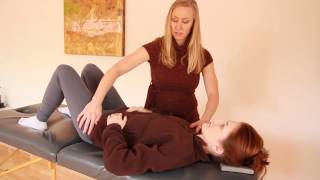I have had the honor to teach Alexander Technique during the Classical Training Intensive with Louis Scheeder and John Farmanesh-Bocca.
Performing Shakespeare has heightened challenges for the actor. Shakespeare’s characters truly mean what they say and they are usually dealing with life-and-death circumstances. These circumstances trigger anger, confusion, desperation, exalted joy, rage, overwhelming love, deep desire, and suicidal sadness.
These are all emotions that the normal person does everything in their power to avoid. They are difficult and painful to honestly communicate.
In my first 2.5 hour training with these enthusiastic actors who were hand-picked for the training and festival, I emphasized the essential ability for the actor to be able to breathe.
Under the high-pressure stakes of Shakespeare and rehearsing in front of renowned Shakespeare teachers and other highly-skilled performers, many of the actors interfered with their own ability to breathe freely so that the emotion could not pass through their bodies.
Here are some of the ways they interfered:
1) Sniffing in a deep breath before beginning a monologue. This sniffing action requires your body to work much harder to receive the breath necessary to support the complicated language and rhythm. You will actually make yourself more nervous and your body will tighten with tension.
2) Rushing to begin and get the monologue over with. When you rush, you usually have to push the words out and you compress your neck, ribs, and spine. The actor I worked with was losing her lines. Even her memory wasn’t serving her because the rushing triggered a “Fight Flight or Freeze” response.
3) Pushing the head, neck, and shoulders forward to communicate anger and/or frustration. This requires a lot of physical tension and cuts you off from your breath and voice. You also close your body off by narrowing the chest, shoulders, and abdomen.
As I worked with the actors, I gave them the light and guided touch that Alexander Technique teachers have in order to communicate the release in their neck, shoulders, and abdominal wall.
Each actor reported feeling lighter and that it was easier to breathe. This release of tension in the neck and shoulders make them look powerful and open.
I invited them to think about having space for breath to happen to them. They did not need to BREATHE. Their bodies breathe FOR them. Another way to think about this is allowing for length, width, and depth in the torso.
 They all practiced Constructive Rest which is a floor exercise that allows the muscles of the torso to release into length and width.
They all practiced Constructive Rest which is a floor exercise that allows the muscles of the torso to release into length and width.
I led everyone through an awareness exercise that demonstrated that breath moved them from the inside. They did not have to force breath in and out. This can profoundly center and calm your nervous system before auditions and performances.
Our second workshop is this week. I am eager to share the “tools” of Alexander Technique while they perform their monologues. The spaciousness in the body, which allows for free and easy breath, supports the difficult circumstances of seeking revenge, proclaiming your love, or plotting the demise of you forsaken lover.





